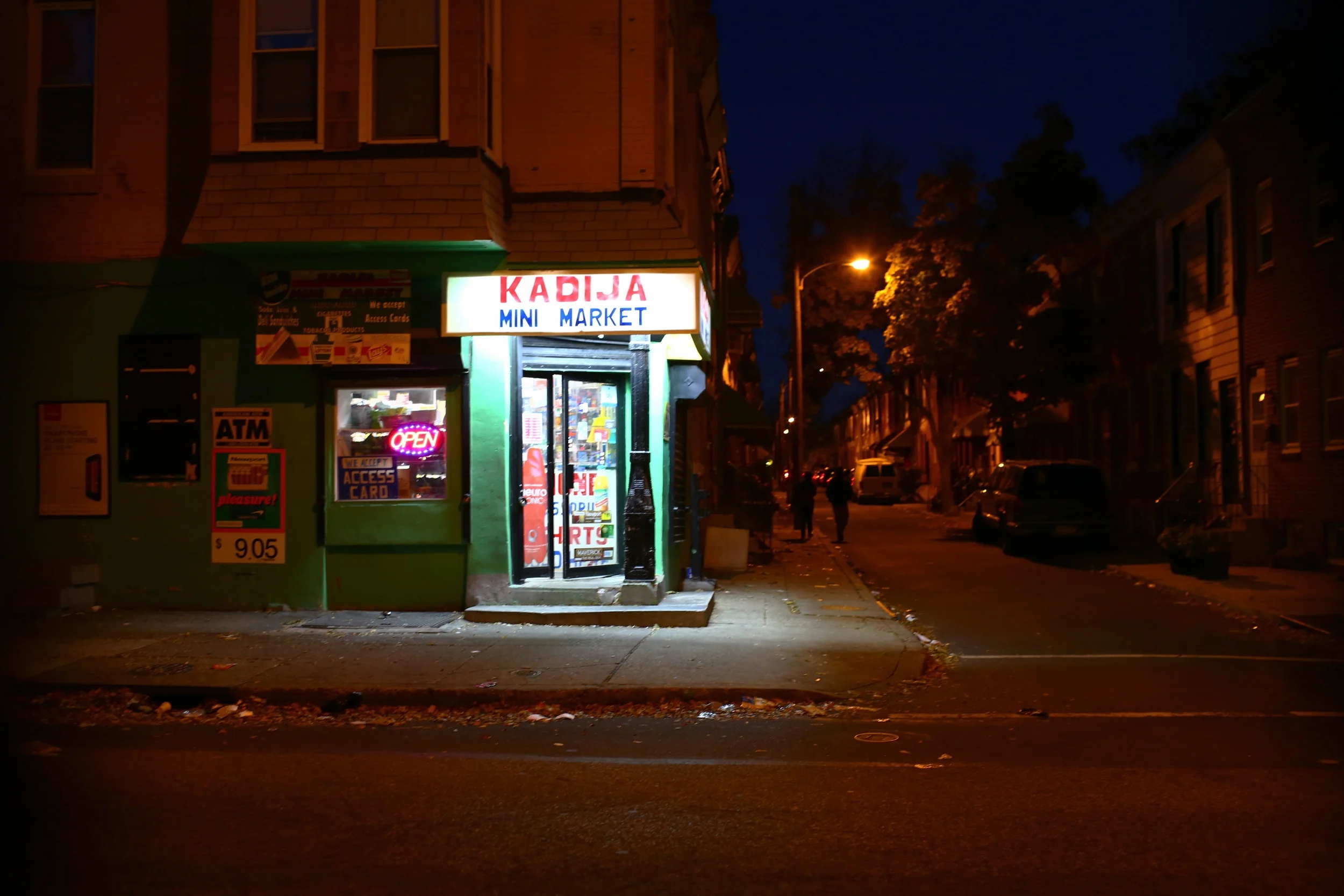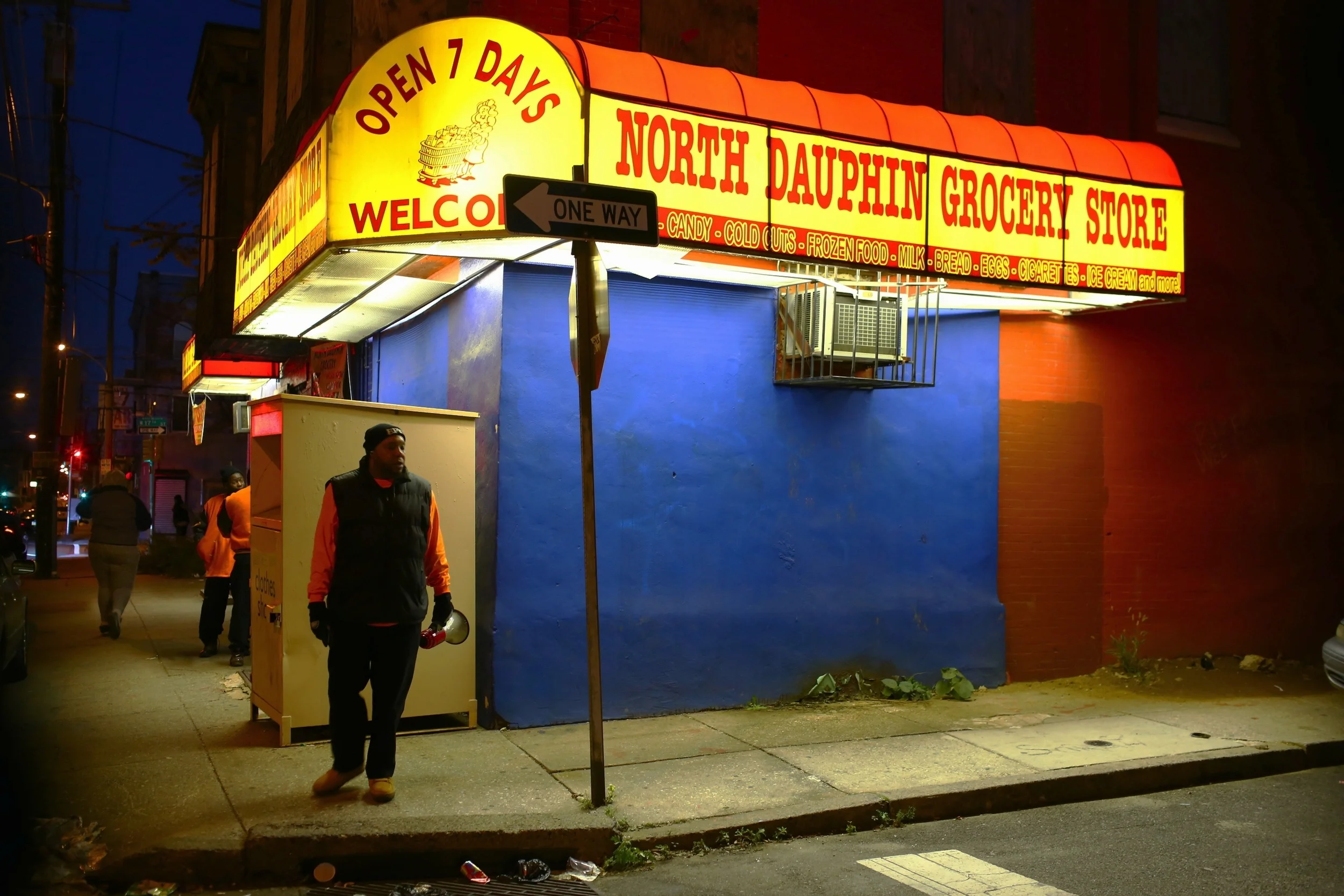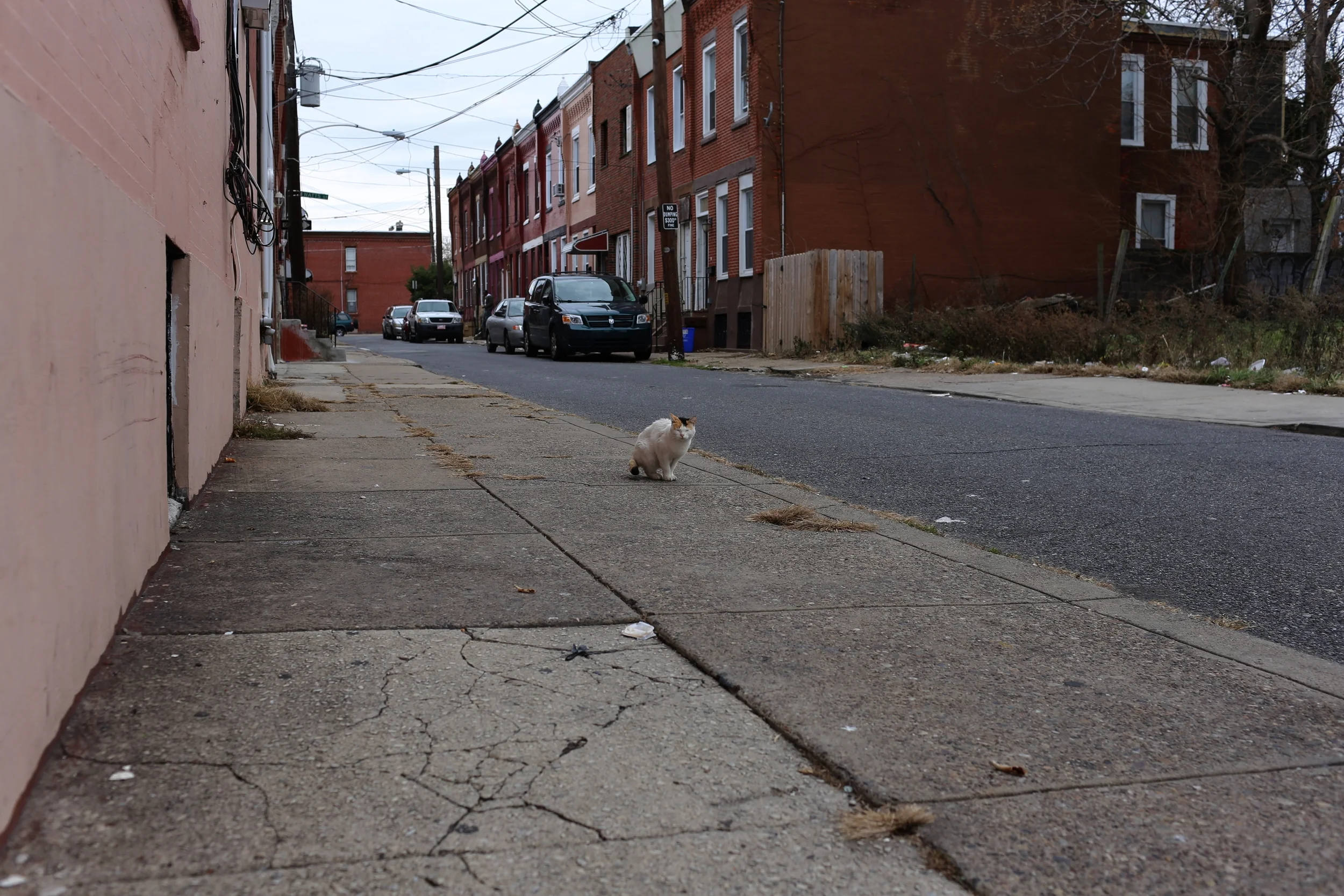












Colwin Williams
North Philadelphia
Colwin Williams, an outreach worker for Philadelphia CeaseFire, speaks for change. He uses his words to motivate his team, to encourage North Philadelphians to rally for peace following shootings, and to resolve conflicts. According to Colwin, gun violence in Philadelphia is more complicated than a proliferation of weapons on the street, or blurbs on the 10 p.m. news. Gun violence is a product of a culture of violence.
When I Grow Up
“I was at a community center … speaking with youth ages 6-9 years old, and I was asking both males and females what they wanted to be when they grew up. Most of the little girls said they wanted to be doctors and nurses, some [said] lawyers, some [said] basketball players … Not one said they wanted to be the best pole dancer in North Philadelphia. No one said they wanted to be the best welfare recipient in North Philadelphia. Same thing with the young men. Usually [they say] they want to be professional sports players, some want to be architects, some want to be firemen, policemen, doctors. None of them said they want to grow up to be thugs.
“At the same time … they got their start at home … Because if you're holding those guns, who's holding your child? … That's where the violence starts.”
Feeding the Brain
“One emphasis that is placed on outreach workers is the consistency of mentoring, of being in their ear. We’re up against the Information Age. We’re up against the media - that comes with the rap world, the hip hop music or the rock and roll music, the smoking of the weed, the playing of the PlayStations. [In the] course of a day of an average teenager or young adult … eight or nine of those hours consist of listening to music, Facebooking, Instagramming, smoking weed, and drinking. His actions are going to show that. His thinking is stagnated … constantly feeding the brain, feeding the mentality [of] that type of ignorance.
“The real concept again is changing one's thinking. See, if you change the behavior and thinking, you could put a thousand guns there and it wouldn't matter.
“What we want to do is stay in their ear. We want to call them, one, two, three times a week. We want to meet with them. We want to take them outside of [their] environment and let them see something else. Because it’s hard, it’s a sickness, it’s a disease, when you have people with so much potential. It’s like having a lion cub being raised with a bunch of pussy cats. Every time that lion goes to roar and use his real vocals, you smack him on the head. You don’t feed him meat. You give him milk. Then he hangs around the other pussy cats and starts to emulate them in due time. It’s learned behavior. It’s environmental, it’s social, its economic. There’s a whole lot of things involved, so we try to come from all angles.”
The Void
“This country was built on violence. The Revolutionary War was violent. The Civil War was violent. A lot of times, violence is also handed down, generation to generation. There are areas in North Philly now where young boys’ fathers and uncles were warring and automatically it goes on to the next generation. It’s almost an unwritten code: ‘You get what I’ve been going through.’
“A lot of it is also when you take an overwhelming population of black men, and they’re incarcerated, strung out on drugs, or dead, you leave a void. With that void, anything can be put there. A lot of [our participants] never had strong male mentors in their life. A lot of them come from single family homes. A lot of their fathers are … incarcerated, dead, or just emotionally absent. So, it leaves a void inside of those male children in that targeted age group [15-25] who are doing most of the violent activity that’s taking place out there now. That common denominator is not having a strong father, a strong role model in the house, and eventually the streets become their daddy.
“And we understand that the streets don’t have any love at all. It’s a sick relationship … And that’s where the conflict comes in. You would think it would be so easy for somebody to say, ‘I don’t want that lifestyle … but when it’s a learned behavior and you grew up in that lifestyle, it becomes a part of who you are. And you know one thing about human beings, like any creature, we’re creatures of habit. It’s so easy to become accustomed to one’s plight. You can’t see the forest because of the trees. You know, a lot of them can’t see outside of the hood.”
- - - - - - - - - - - - - - - - - - - - - - - - - - - - - - - - - - - - - - - -
Interview by Lamar Thomas and Tan Chan | Text by Dan Kurland | Portraits by Dyana Wing So | November 2014